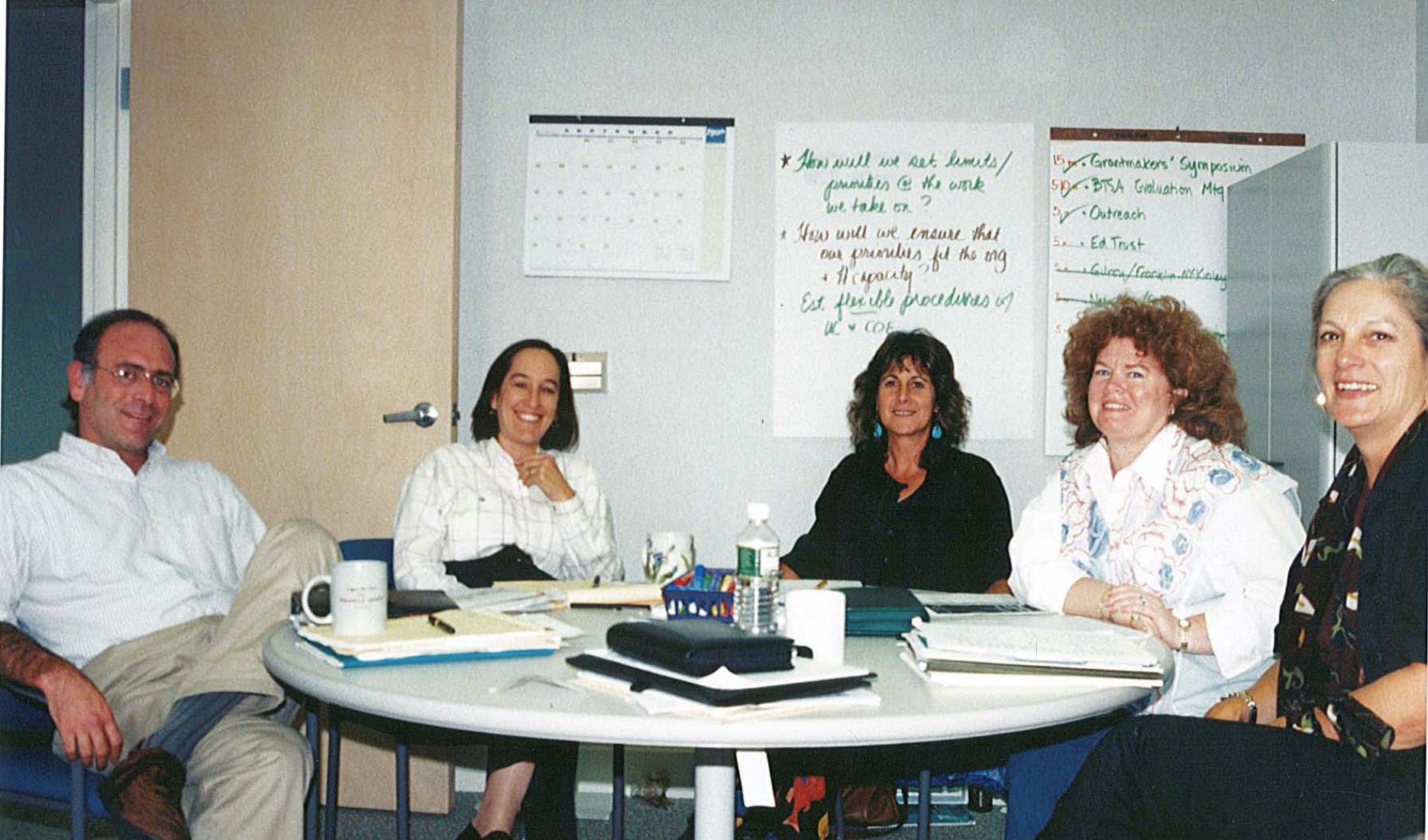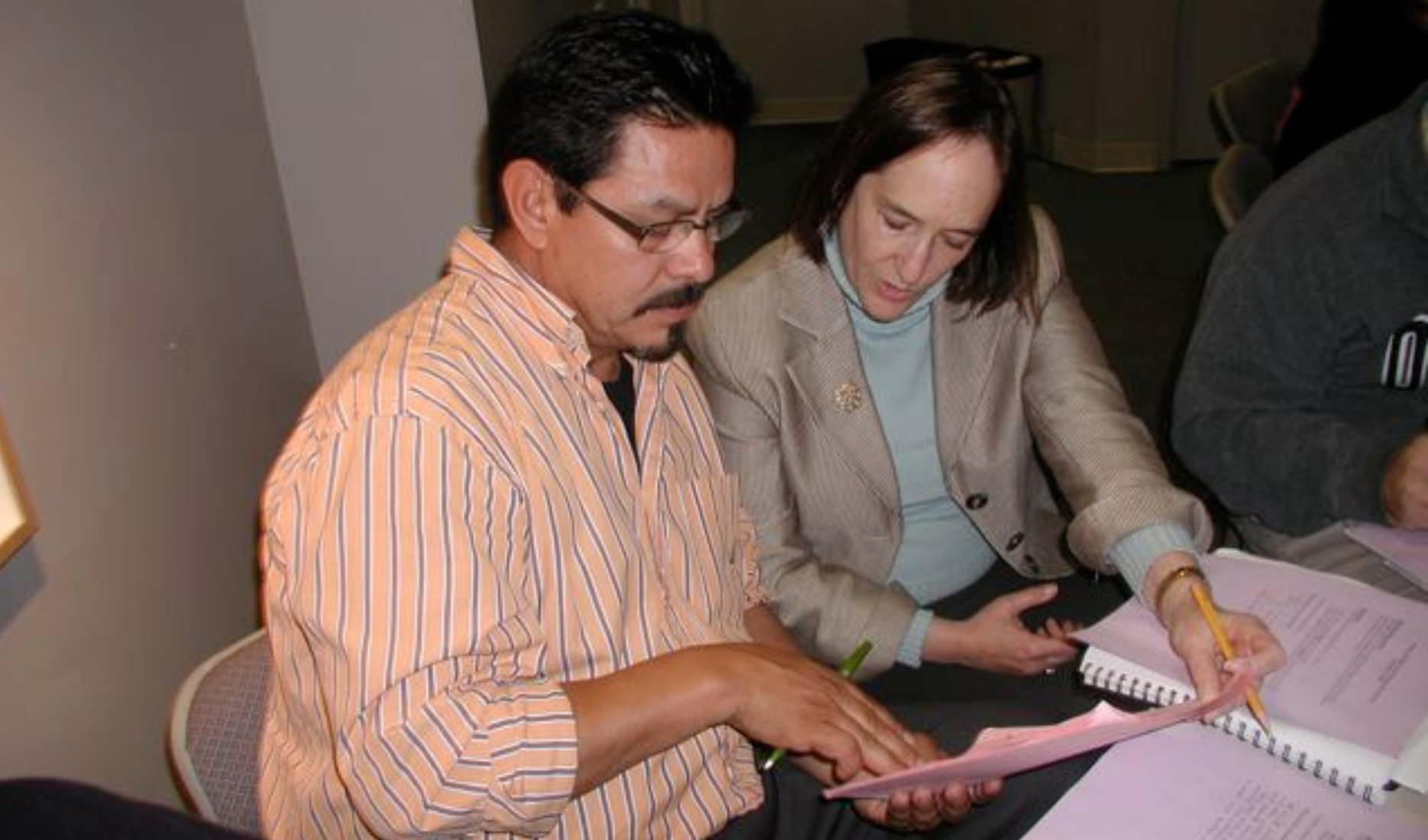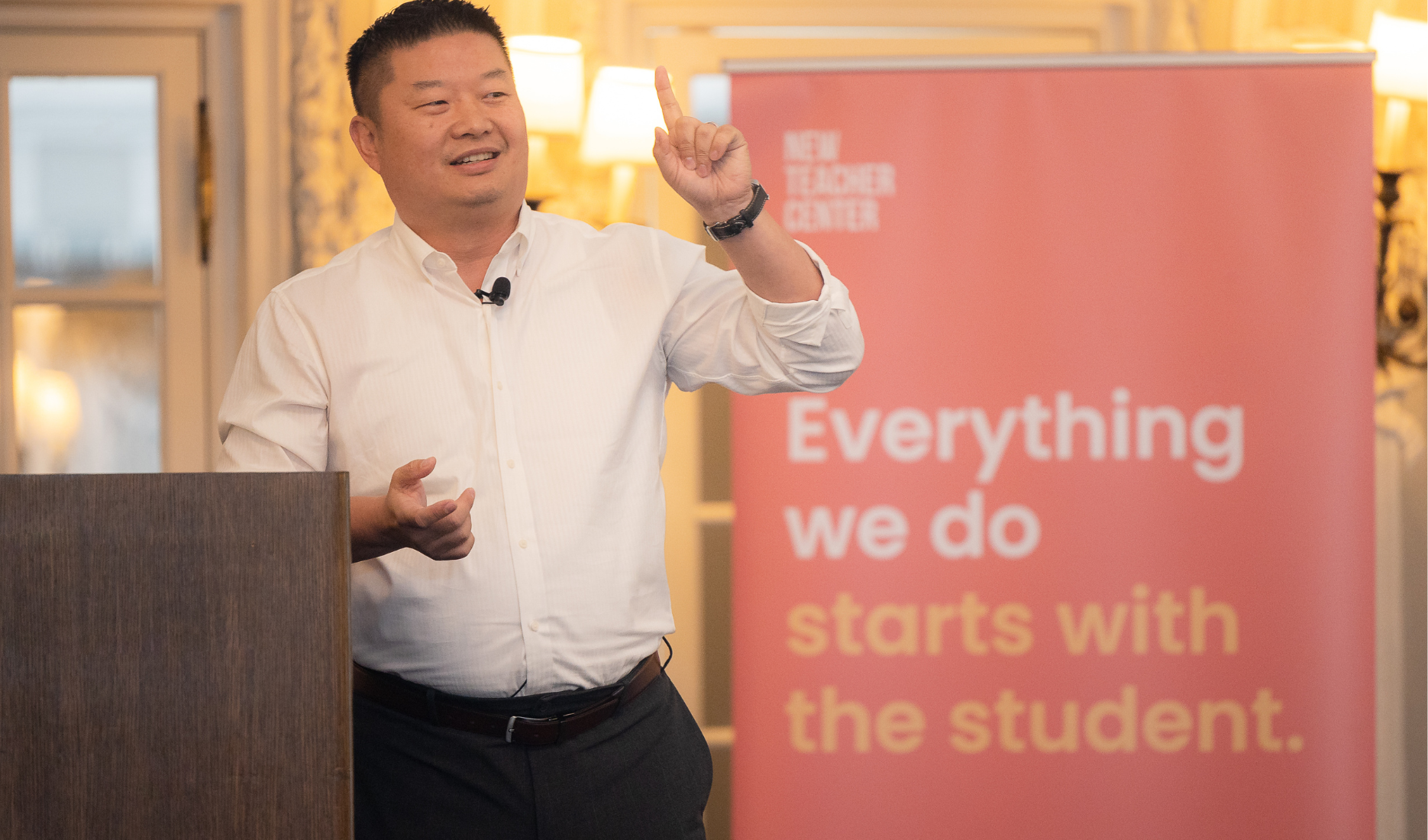
What begins as a conversation among four educators grows into a pioneering model for supporting new teachers.
1988
Launching the project
In response to the challenges facing novice teachers (50 percent of new teachers left within five years or less), a new program was founded by Ellen Moir, then Director of Teacher Education at the University of California, Santa Cruz (UCSC), in collaboration with Wendy Baron, Supervisor of Teacher Education at UCSC, and supported by the Chair of the UCSC Teacher Education Program, Eugene Garcia.
1992
Proof of concept
The Santa Cruz New Teacher Project’s four-year pilot saw 37 induction programs serve more than 3,000 beginning teachers who were mentored by 2,200 experienced teachers in a cross section of urban, suburban, and rural school districts. An evaluation study showed improvement in both teacher practice and retention.
1998
NTC established
With major support from the Walter S. Johnson and Noyce Foundations, the Santa Cruz New Teacher Project became the New Teacher Center, based at the University of California Santa Cruz. NTC began a quick expansion beyond the greater California Bay Area to bring induction and mentoring services to a broader portfolio of schools.

NTC expands its reach beyond California, building strategic partnerships, new and specialized programs, and the exploration of new technologies to support educators.
1999
Inaugural symposium
A group of 175 thought leaders, policymakers, funders, researchers, and educators came together at UCSC for the first annual Symposium. The event, which focused on supporting new teachers and the role of mentorship, was the first of its kind. Over 22 additional Symposiums have taken place to date, serving more than 15,000 changemakers and educators from all 50 states and multiple countries.
2001
A national pilot takes flight
The Goldman Sachs Foundation enabled the NTC teacher induction model, considered the “gold standard” for mentor-based induction programs, to be replicated in rural and urban districts in other states. The national pilot opened up partnerships with districts in Dorchester, MD, New York City, and Charlotte, NC, and outreach and dissemination statewide in Wisconsin.
2002
National Science Foundation partnership
In collaboration with the National Science Teaching Association and Montana State University, the National Science Foundation awarded NTC a five-year, $7.5 million grant. The initiative supported virtual mentoring networks to provide support to beginning science teachers in middle school and high school.
2003
Pre-service collaboration with higher ed
The Carnegie Foundation and NTC partnered in the Teachers for a New Era program to revitalize and shift teacher pre-service programs across the country. The project provided support for new teachers that extended from college preparation through the first two years in the classroom.
2005
School leader development launches
Building on initial programs to support new administrators, NTC piloted a new training program to support principals as instructional leaders. It enabled the development of action plans for site-level instructional leadership by providing principals and school leaders intensive, contextualized support from a coach or mentor.
2006
Chicago Public Schools partnership
CPS, the nation’s third largest school district, launched a human capital management strategy with NTC to take on the deep challenge of improving beginning teacher retention. The 15-year partnership continues today, focusing on sustainable models for coaching, school leadership, and curriculum implementation.
2006
USDOE evaluates induction impact
Mathematica Policy Research, Inc. selected NTC to be one of two providers of teacher induction program models for the first U.S. Department of Education evaluation of mentor-based induction. The program brought mentor training and beginning teacher seminars to eight large urban school districts over a two-year period.

NTC shapes education policy by using evidence to advocate for effective teacher induction at state and national levels. And we broaden our scope to support educators and students holistically.
2009
Harvard features NTC's induction
Harvard Education Press published New Teacher Mentoring: Hopes and Promise for Improving Teacher Effectiveness, laying out our principles of high-quality instructional mentoring and providing case studies for a variety of applications and situations in school districts.
2011
Review of state policies on induction
In partnership with the Joyce Foundation, NTC created comprehensive summaries of induction policies for all 50 states. The review elevated 10 key state policy criteria for comprehensive, high-quality induction that accelerates new teacher effectiveness and improves teacher retention at the state level.
2013
Measures of Effective Teaching Project
The culmination of a three-year project, the MET Project, funded by the Bill & Melinda Gates Foundation, was a collaboration between NTC, dozens of independent research teams, and nearly 3,000 teacher volunteers from seven U.S. public school districts. The findings provided measures for identifying great teaching as a means for educators to improve their practice and serve as the basis for more targeted professional development.
2014
Launch of early learning work
Funded by the David and Lucile Packard Foundation, the Starting Smart and Strong Initiative began in three communities across the Bay Area as well as Alum Rock in East San Jose. NTC’s first efforts to promote and sustain high-quality early learning programs revealed a deep need for professional development infrastructure and support for preschool and transitional kindergarten teachers.
2017
i3 federal grant validates NTC model
A five-year federal study revealed that students of NTC-supported teachers gained up to five months of additional learning in reading and math. Evaluation partner SRI International shared how the NTC model supports educators in delivering high-quality instruction focused on student needs with big results.

We’re driving a national shift to break down barriers to what empowers educators, unlocking potential for students, and fostering limitless success.
2020
Federal support for instruction
NTC received a five-year, $7.9 million Education Innovation and Research grant to implement our whole-school professional learning model with three sites across the U.S. Through anchored instructional support for coaches, teachers, and school leaders, the data-driven approach opens up new pathways to steer instruction practices, improve learning, transform school culture, and retain teachers by meeting students’ needs.

